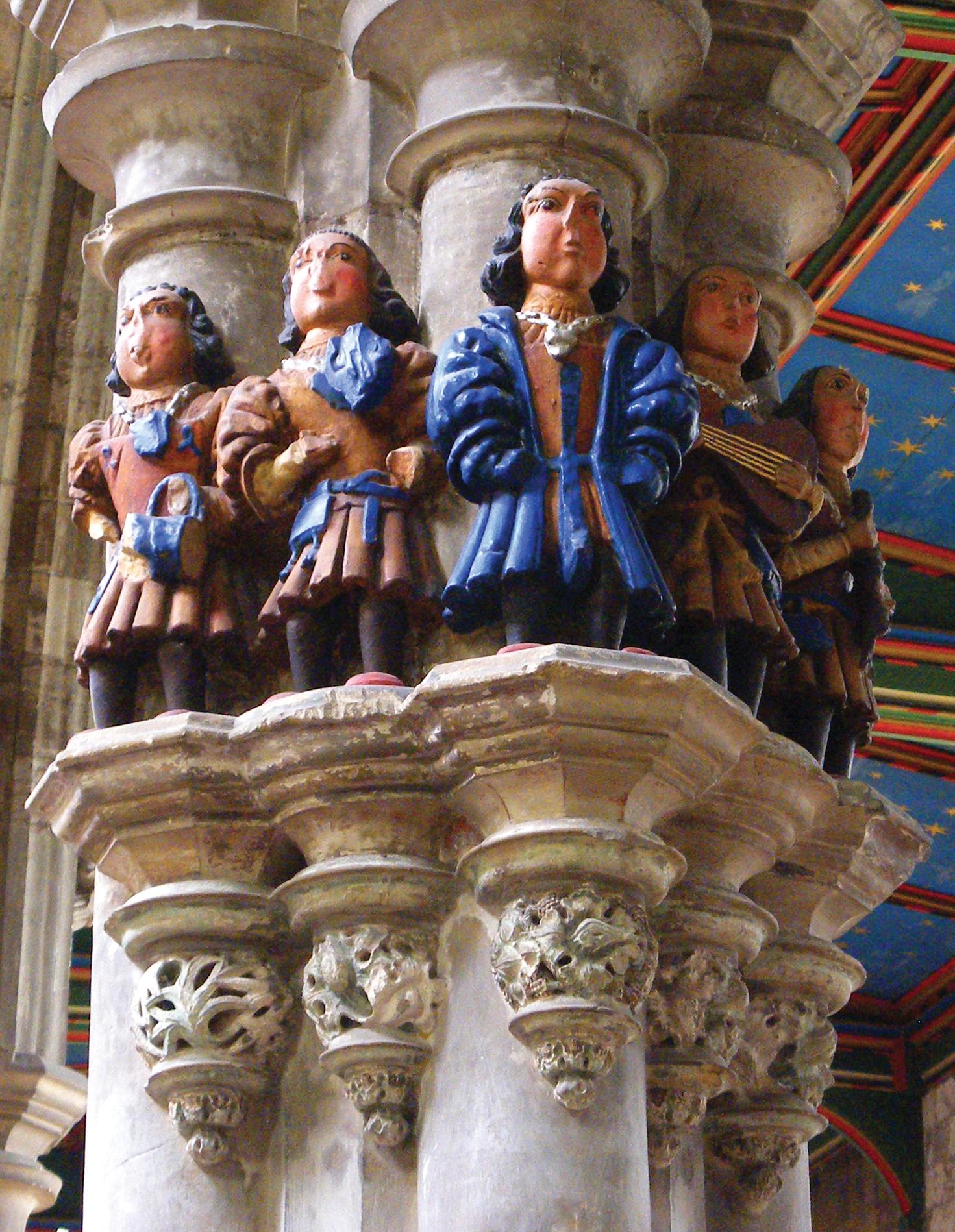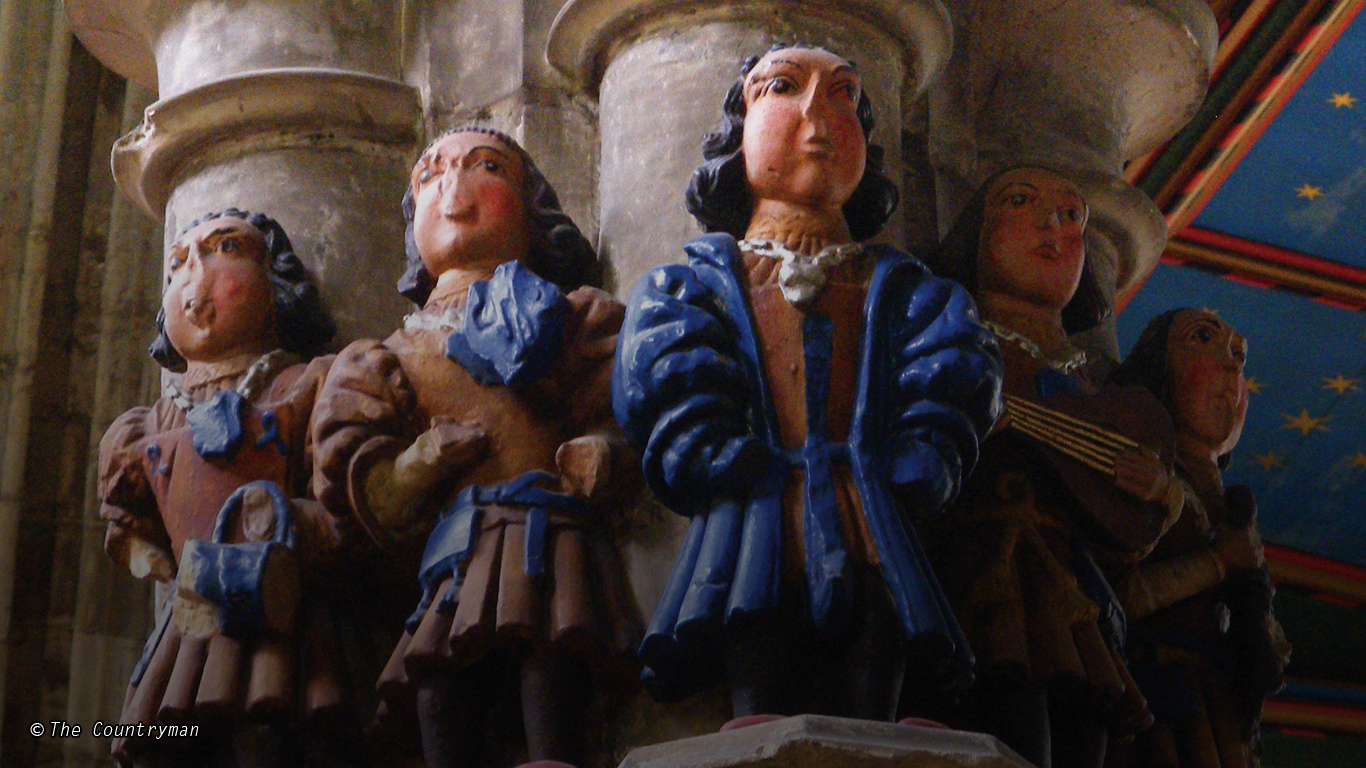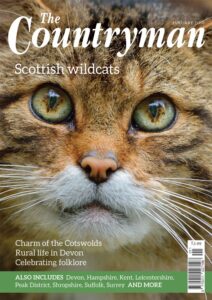This month, we’re delighted that the wonderful folks over at The Countryman magazine have kindly featured #FolkloreThursday in their January edition! The Way We Were is a ‘looking back’ nostalgia column in The Countryman, which regularly covers folklore, customs, and tradition-related topics. Here are just two of these wonderful inclusions, which meander across time and place, really bringing the history of the UK to life.
Sanctuary, Sanctuary
Today we have the High Court. In centuries past, those guilty of serious crimes who wished to prove their innocence could seek sanctuary in a church or cathedral.
This right to be safe from arrest was enshrined in English law from the fourth century AD onwards. The procedure was regulated in the minutest detail. Once a fugitive had sought sanctuary, they had to make a full confession of their crime, surrender any weapons, and swear an oath to observe the sanctity of the religous house. The fugitive would then remain in the church for a month while the religious authorities looked into his case. This would establish whether the fugitive was innocent, whether the case could be settled with monetary compensation (‘wergild’) or whether they were guilty, in which case they would be escorted to the coast and forced to flee the country.
In several English churches there was a stone seat beside the altar, known as the frith stool (‘peace chair’), upon which the fugitive would sit to claim sanctuary. There is a particularly fine example dating from Anglo-Saxon times in Beverley Minster, East Yorkshire (pictured). The right of sanctuary at Beverley, granted by King Athelstan (c859-939 AD), extended for a mile in all directions round the Minster and was marked with boundary stones.
Fugitives at Beverley seem to have been particularly well treated. After swearing the oath and paying a fee of 2s 6d to the bailiff, they would be fed in the refectory, and sometimes lodgings in the Minster precinct would be provided. The roll call of those who sought sanctuary at Beverley includes tilers, skinners, litsters (dyers), weavers and websters, shearmen, chapmen, minstrels, pewterers, vintners, pouchmakers, singing men, fustian shearers, esquires and gentlewomen.
The privileges of sanctuary were considerably curtailed by Henry VIII, and abolished altogether by James I.
For more information, visit www.beverleyminster.org.uk.

Beverley’s boy band
This splendid group of five colourful musicians is perched on a pillar in St Mary’s Church, Beverley, East Yorkshire.
This town in medieval times was famous as a centre for secular music, and its guild of musicians was particularly powerful. It controlled all the minstrels in the North and provided minstrels to serve as the ‘waits’ (watchmen) of the town.
When St Mary’s was being rebuilt after the tower had collapsed around 1520, the musicians’ guild contributed to the restoration work. The church commemorated the guild’s donation with this fine stone carving of five of its number. It would be nice to imagine that, perhaps at the dead of night, this medieval boy band bursts into song once again. For more information on St Mary’s Church, visit www.stmarysbeverley.org.
Beverley celebrates its musical heritage each May with its Early Music Festival, which this year (24-27 May) features Il Quadro Animato, Lux Musicae London and the National Centre for Early Music’s youth instrumental ensemble The Minster Minstrels. For more information on Beverley Early Music Festival, visit http://www.ncem.co.uk/bemf

The Countryman
The Countryman is one of the oldest, most respected countryside magazines in the world. It appears every month and is read by thousands of people throughout Britain and overseas, who share its concerns for the countryside, the people who live and work in it, its wildlife, and its customs, traditions and folklore.
The Countryman includes features on the people, places and history that make the British countryside so special.
In recent issues it has included features on topics as diverse as: haunted pubs; Hallowmass recipes; the Green Man; Cornwall’s “seductive mermaid”; Allendale Fire Festival; the custom of making corn maidens or kern babies at harvest time; traditional country shows; the folklore of the little owl; country customs; endangered heritage crafts; rural dialects; the facts and fictions surrounding crop circles; and Britain’s rich and fascinating history of fairies, piskies, elves, gnomes and goblins.
We’re sorry, but the offer of a free copy of The Countryman is now finished due to being oversubscribed — all free sample copies are now gone. Do still sign up for the #FolkloreThursday newsletter for more great offers from #FolkloreThursday!
Find out more about the magazine here.


